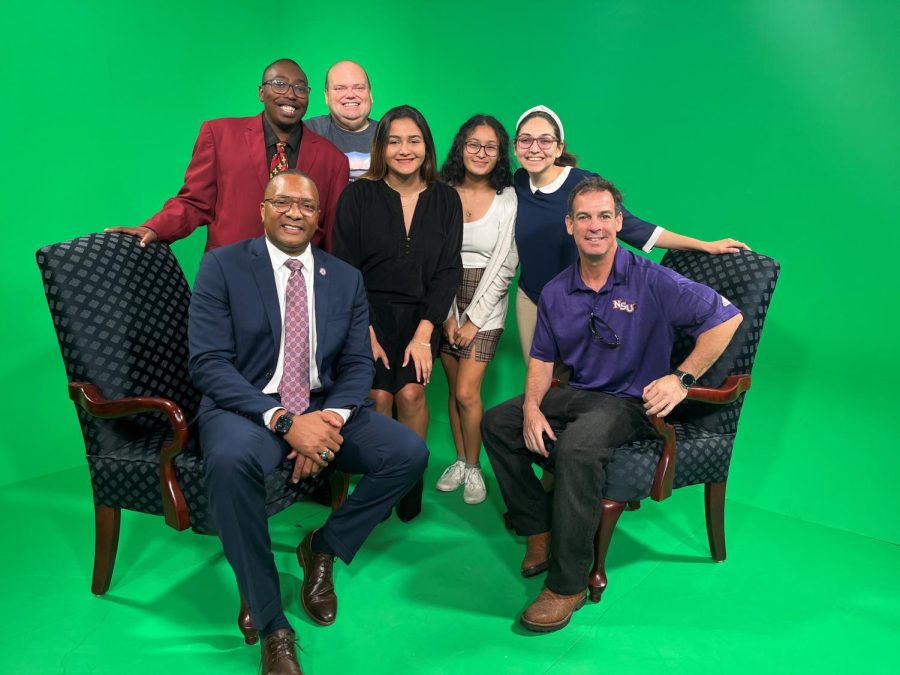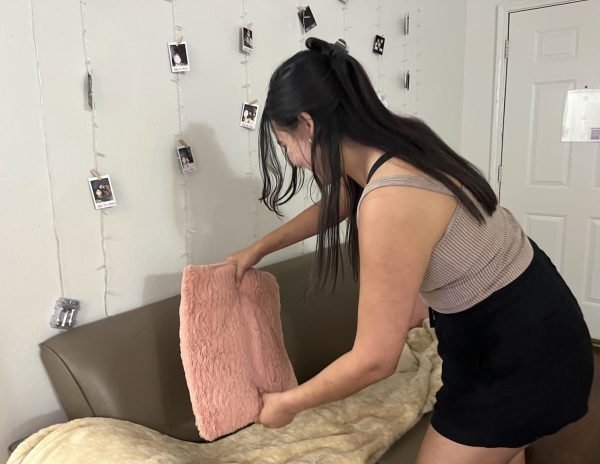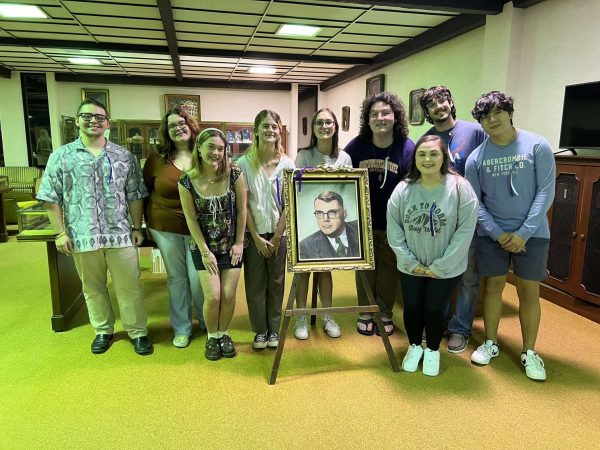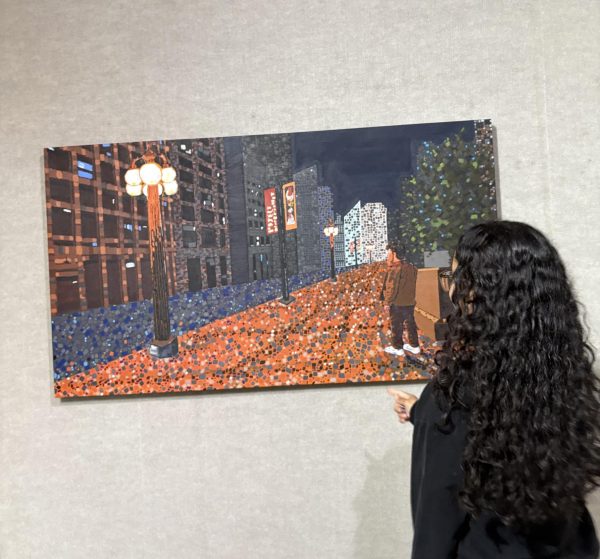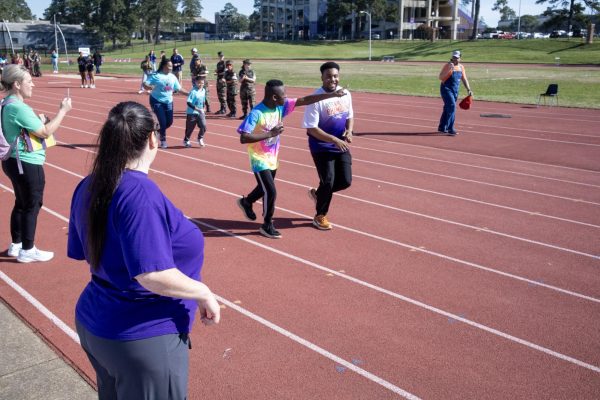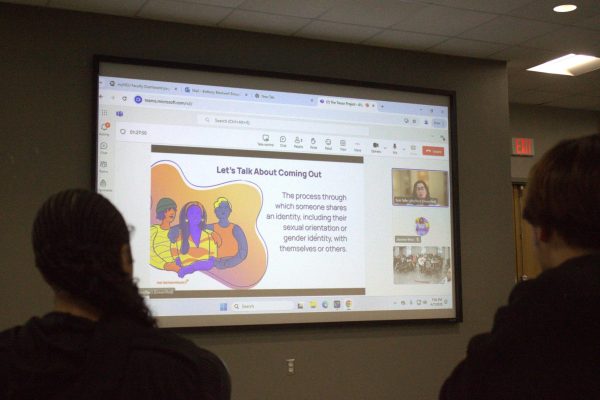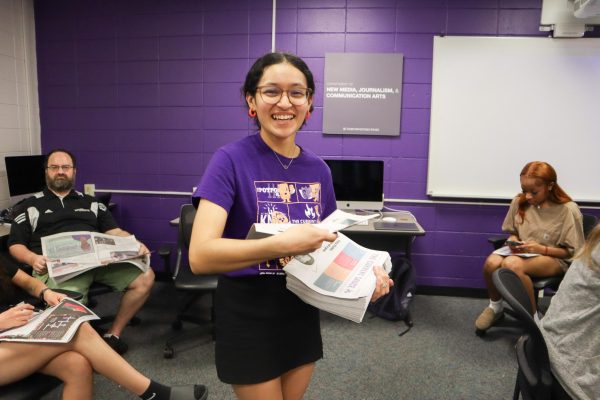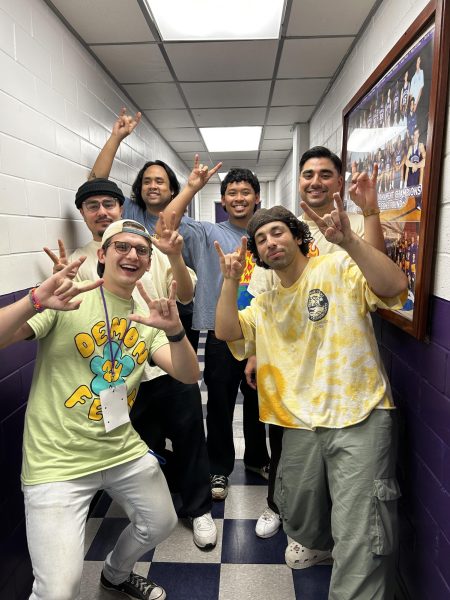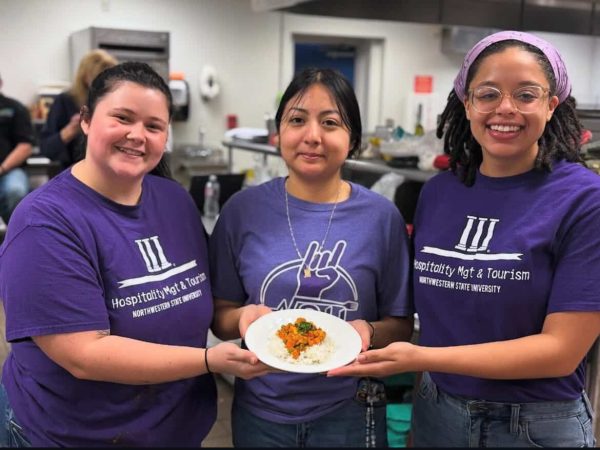The emergence of Hispanic culture at NSU
(L-R) Jordan Johnson, President Marcus Jones, David Antilley, Naydu Daza, Lia Portillo, Annie Rivera and Nick Taylor sonríen para una fotografia despues de entrevistar a el Presidente Jones.
This story has a Spanish and English translation. You can access the Spanish translation here.
The impact that President Marcus Jones has on the international exchange study program here at Northwestern State University of Louisiana is evident with the diverse Hispanic population he has brought.
From Colombia, Mexico, Honduras, El Salvador and other Latin American countries, President Jones paved the way for many international Hispanic students to pursue an American education at NSU.
In fact, President Jones explains how his networking in Cartagena, Colombia is a reason the international exchange program found its roots within Latin America, he said.
“When I was vice president in 2007, I talked to president Dr. Webb because there was no type of exchange programs, nor was there enough international students and I wanted to open the doors to international students,” Jones said. “[Cartagena] was the last place where I spent a lot of time in and with the contacts that I got from there, I went and began to make exchanges and agreements with them and from there the international program began, and it opened the doors for international students, mainly from the music school in Comfenalco, and from there it began extending greatly.”
One of Jones’ biggest ambitions with the program is to give international students and native students a networking opportunity with each other. By bringing international students and giving the opportunity to native students to participate in exchange programs, NSU students have the bridge to connect across the world, he said.
As far as the sense of inclusion for international students, Jones feels that NSU natives have welcomed every aspect of international culture.
“The music, the food and the culture in general are something that the students here like, and I think the students from abroad are also learning American culture and the Americans from different places and sectors of the country are too,” Jones said.
Jones describes how the difference between the American North and South is something that is explored at NSU. He believes that out-of-state students bring with them their different cultures and Louisiana natives interchange their culture with others, he said.
During his time in Latin America, he visited Mexico, Peru, Cuba, Panama and Colombia. This exploration of cultures and the exploration of the Spanish language has given him an appreciation of Hispanic heritage.
“Sometimes I feel Hispanic, because of the amount of time I stayed in those Latin countries. I have two god-children that live in Mexico, and I’m building a house in Mexico, so I feel those Hispanic roots,” Jones said. “I know that I am not Hispanic, but it is something that I have adopted.”
He advises any Hispanic to get in touch with their roots and hopes that NSU can celebrate them.
“I know that a lot of times there are not a lot of connections when a student is born here or comes to the U.S. and their parents are Latinos, but there is a flavor of culture that cannot be denied. I think one has to search and learn the most about their country,” Jones said.
He explains that there is beauty in learning things about one’s culture and home country and that the pride that comes with it should be enjoyed, he said.
Jones wishes that one day he can host a festival like the international festival that happens in Lafayette. One that is smaller but showcases the beauty of Hispanic culture, he said.
“For me, I want the event to represent the food, the music, the art and the dance from those countries close and far to the U.S.,” Jones said. “I think this event would be an opportunity for people to learn more about these countries. Because racism persists from the lack of understanding and access to diversity, and I think this would be a great way to break that thought and expose others to this beauty.”

Lia Portillo is a communication major in her last year at NSU. She has worked for The Current Sauce since her freshman year and has loved writing stories...





















